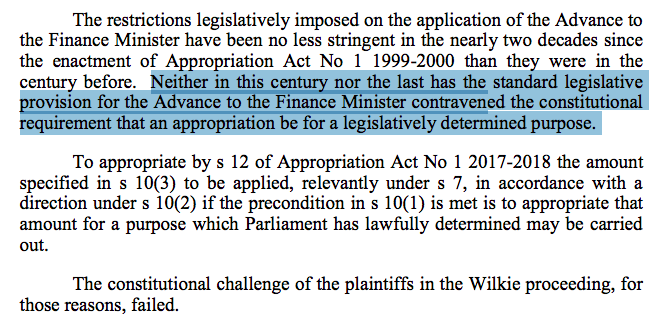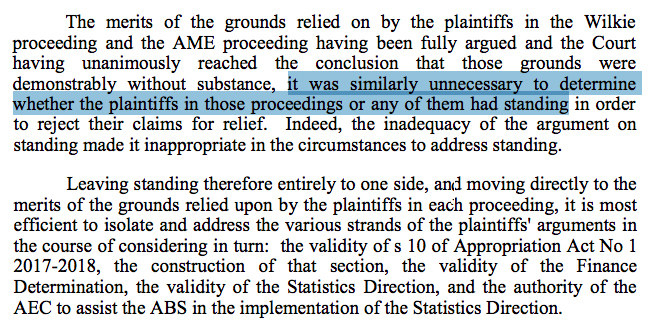It seems like years ago now, but there was a time when we were unsure if Australia's current postal survey on same-sex marriage would even go ahead.

You might remember the High Court challenge earlier this month, in which two groups of parliamentarians and same-sex marriage advocates tested whether the government had the right to spend $122 million on the survey.
The two challenges argued the following: that they had standing, or the legal right, to bring the case; that the Advance to the Finance Minister in the Appropriation Act that Mathias Cormann used to spend $122 million was unconstitutional; that Cormann's determination itself was invalid under the Act; that the Australian Bureau of Statistics (ABS) did not have the ability to collect people's opinions about marriage; and that the Australian Electoral Commission (AEC) could not be involved in the postal survey.
The day after the expedited hearing concluded earlier this month, the High Court gave its short answer: Yes, the government can go right ahead.
But on Thursday, its long answer — the written reasons for why it decided in favour of the government — was published. Here's what it said.
Legally, it doesn't matter if you call it a vote, a plebiscite, or a survey — as long as statistical information is collected.

In a blow to people tweeting "Actually it's a postal survey" across the nation, the court pointed out that it's legally irrelevant how you describe the postal survey.
Also, people's opinions about marriage do count as statistical information and the ABS can collect them.

The High Court judges seemed unconvinced by this line of argument in the actual hearing, and this was reflected in the written judgment. The judges ruled that information about the number of people who hold particular opinions or beliefs is statistical information.
"The Court, apparently, was to ignore the fact that the ABS had in practice collected a wide range of data concerning opinions and beliefs in the administration of the Statistics Act since at least the 1960s," the decision read.
The Advance to the Finance Minister, which Cormann used to fund the postal survey, is constitutional and always has been.

The Court ruled that the Advance to the Finance Minister is constitutional and has been since Federation.
Spending $122 million for the postal survey was both urgent and unforeseen — and therefore fulfilled the requirements of the Advance to the Finance Minister.

The judges accepted that Cormann was satisfied of the urgent need for spending because the ABS had been tasked with announcing survey results by November 15. The fact that date was set down by the government itself made no difference to urgency.
"Urgency, of course, is a relative concept," the decision reads. "The concept here is of urgency in the context of the ordinary sequence of annual Appropriation Acts."
The court also rejected the plaintiff's argument that the spending could not have been unforeseen because government ministers had been discussing a postal vote of some kind in the early months of 2017.
The judges found that it was only the "actual payments that are to be made" that must be unforeseen — aka, specifically $122 million, for the ABS, for a postal survey on same-sex marriage.
"The question is not whether some other expenditure directed to achieving the same or a similar result might have been foreseen by the executive government," the decision reads. "Nor is it whether the actual payments to be made might have been foreseen other than by the executive government."
In short:

Also, it's up to Cormann to decide whether expenditure is urgent and unforeseen, not a general test.

This is getting a bit technical, but the plaintiffs argued that while it was clearly up to Cormann to determine if the spending was urgent, it was actually not up to him to determine if it was unforeseen, after the wording of the Appropriation Act changed in 2008.
The Court rejected this, saying it was a change in language, not meaning, and that it was still up to Cormann to determine if it was unforeseen. Which, as discussed above, he did.
The AEC does have the power to help the ABS with the postal survey.

This was a minor legal argument at the hearing — that the AEC didn't have the power to assist the ABS by, for example, sending forms to silent voters. The court ruled that the AEC can indeed make arrangements with other organisations under the Electoral Act.
Oh, and: the court didn't decide on standing because the arguments were, in its opinion, so weak that it didn't have to.


